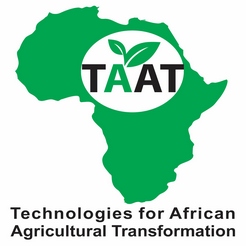
ENABLE TAAT is one of 15 Compacts comprising the Technologies for African Agricultural Transformation Program (TAAT), funded by the African Development Bank (AfDB) and led by the International Institute of Tropical Agriculture (IITA). Within TAAT there are nine Commodity Value Chain Compacts and six Enablers Compacts. The purpose of the Value Chains is to champion modern agriculture in their respective areas, and the Enablers offer them specialized services to help them do so. The ENABLE TAAT Compact is one of these Enablers and charged with opening agribusiness opportunities to youth across all of TAAT’s Value Chains. These value chains were selected on the basis of their potential for economic growth, food self-sufficiency and improved human well-being across Africa; and they include rice, wheat, maize, sorghum/millet, cassava, beans, sweet potatoes, fish and small livestock (including poultry). The IITA Youth Agripreneurs were selected to lead youth empowerment within TAAT because of its widely recognized Agripreneur Model and requested to submit a “Compact” proposal. The ENABLE TAAT Compact was approved by the TAAT Program Steering Committee in April 2018.
The overall purpose of ENABLE-TAAT is to assist in the promotion of TAAT’s key agricultural technologies, operate technology and innovation centers for young people on specific commodity value chains, and to stimulate youth-led agribusiness start-up in support of TAAT’s nine Priority Commodity Chains.
Our Goals and Objectives
The goal of ENABLE TAAT is to reduce the economic marginalization of African youth through the introduction of modernized agricultural technologies in a way that leads to new agribusiness and greater employment opportunities. It has four main objectives.
a) Expand agribusiness opportunities. To identify and realize the opportunities for agribusiness and employment available to youth through TAAT’s priority value chains and proven technologies (agribusiness incubation and completion).
b) Provide agribusiness support. To provide advocacy, ICT and agribusiness support Services to over 5000 youth and link them to the parallel efforts of other TAAT Compacts (advocacy and communication).
c) Improve human nutrition. To raise awareness and access to improved nutrition in rural areas through the promotion of nutrient-fortified TAAT commodities (food basket outreach).
d) Advance youth empowerment mechanisms. To develop a project coordination and management structure that advances TAAT interventions related to youth empowerment into the future (IYA coordination and management).
While the Project greatly forwards the agenda of the Agripreneur Movement, it does so in a manner that contributes to the overall TAAT Program. Youth are being proactively directed toward the priority Value Chains in ways that make best use of improved crop varieties and animal breeds, and the best management practices associated with them. Also, ENABLE TAAT is one of six Program Enablers that lend their specialized expertise to these Value Chains, and this project is prepared to work with any and all TAAT Program partners as needed.

